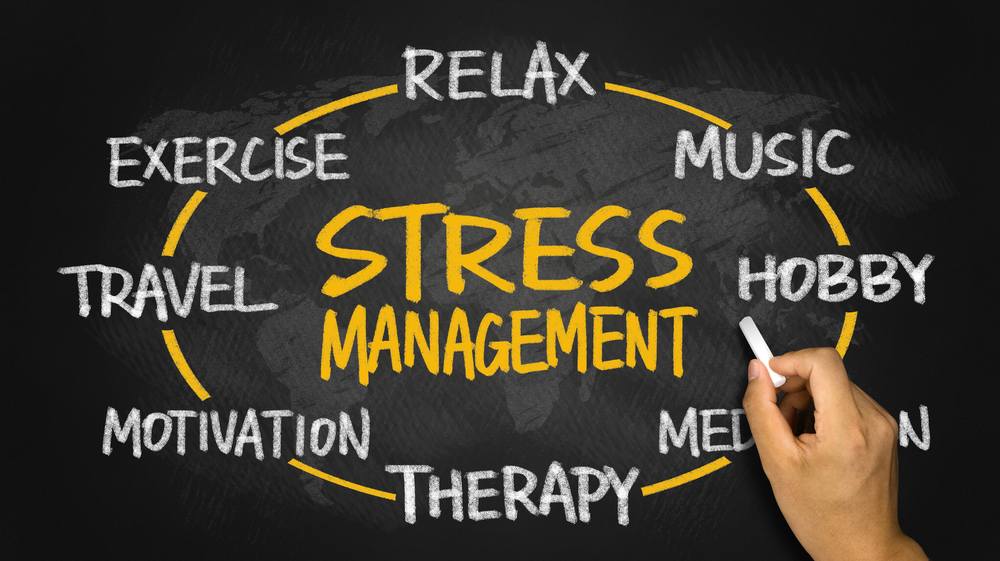That's why it's essential to learn
effective stress management techniques to help you cope with stressors and reduce their
negative
impact on your life.
The first step in effective stress management is to identify the source of your stress. It's important, to be honest with yourself and take a close look at your life to determine what's causing your stress. Once you've identified the source of your stress, you can start taking steps to eliminate or reduce it.
Exercise is one of the best ways to manage stress. Physical activity releases endorphins, which are the body's natural mood elevators. Even just 30 minutes of exercise a day can help to reduce stress and improve your overall well-being.
Relaxation techniques such as deep breathing, meditation, yoga, or tai chi can help to calm your mind and reduce stress. Find a technique that works for you and practice it regularly to help you manage stress.
Relaxation techniques such as deep breathing, meditation, yoga, or tai chi can help to calm your mind and reduce stress. Find a technique that works for you and practice it regularly to help you manage stress
Lack of sleep can exacerbate stress levels. Make sure to get enough sleep each night to help your body cope with stress. Aim for at least 7-8 hours of sleep per night and establish a regular sleep routine.
A balanced diet can help your body cope with stress. Try to eat a diet rich in fruits, vegetables, whole grains, and lean protein. Avoid processed foods and excessive caffeine and alcohol, as these can exacerbate stress.
Setting achievable goals can help you feel in control and reduce stress. Break larger goals down into smaller, more manageable tasks, and celebrate your achievements along the way.
Talking to friends or family members about your stressors and seeking support from them when needed can help you manage stress. Joining a support group or seeking professional help from a therapist or counsellor can also be beneficial. Stress is a part of life, but it doesn't have to control your life. By identifying the source of your stress and practising stress management techniques such as exercise, relaxation, and a healthy lifestyle, you can effectively manage stress and improve your overall well-being.
Stress management is essential in any corporate environment to ensure the well-being and productivity of employees. To manage stress in the workplace, it's important to create a positive work environment that promotes open communication, teamwork, and work-life balance. Providing resources and support for mental health and wellness can also help employees manage their stress levels. Additionally, setting realistic expectations and providing necessary resources can help employees feel more in control of their workloads and reduce stress. By prioritizing stress management at the corporate level, companies can create a healthier, more productive work environment for their employees.
The first step in effective stress management is to identify the source of your stress. It's important, to be honest with yourself and take a close look at your life to determine what's causing your stress. Once you've identified the source of your stress, you can start taking steps to eliminate or reduce it.
Exercise is one of the best ways to manage stress. Physical activity releases endorphins, which are the body's natural mood elevators. Even just 30 minutes of exercise a day can help to reduce stress and improve your overall well-being.
Relaxation techniques such as deep breathing, meditation, yoga, or tai chi can help to calm your mind and reduce stress. Find a technique that works for you and practice it regularly to help you manage stress.
Relaxation techniques such as deep breathing, meditation, yoga, or tai chi can help to calm your mind and reduce stress. Find a technique that works for you and practice it regularly to help you manage stress
Lack of sleep can exacerbate stress levels. Make sure to get enough sleep each night to help your body cope with stress. Aim for at least 7-8 hours of sleep per night and establish a regular sleep routine.
A balanced diet can help your body cope with stress. Try to eat a diet rich in fruits, vegetables, whole grains, and lean protein. Avoid processed foods and excessive caffeine and alcohol, as these can exacerbate stress.
Setting achievable goals can help you feel in control and reduce stress. Break larger goals down into smaller, more manageable tasks, and celebrate your achievements along the way.
Talking to friends or family members about your stressors and seeking support from them when needed can help you manage stress. Joining a support group or seeking professional help from a therapist or counsellor can also be beneficial. Stress is a part of life, but it doesn't have to control your life. By identifying the source of your stress and practising stress management techniques such as exercise, relaxation, and a healthy lifestyle, you can effectively manage stress and improve your overall well-being.
Stress management is essential in any corporate environment to ensure the well-being and productivity of employees. To manage stress in the workplace, it's important to create a positive work environment that promotes open communication, teamwork, and work-life balance. Providing resources and support for mental health and wellness can also help employees manage their stress levels. Additionally, setting realistic expectations and providing necessary resources can help employees feel more in control of their workloads and reduce stress. By prioritizing stress management at the corporate level, companies can create a healthier, more productive work environment for their employees.


















